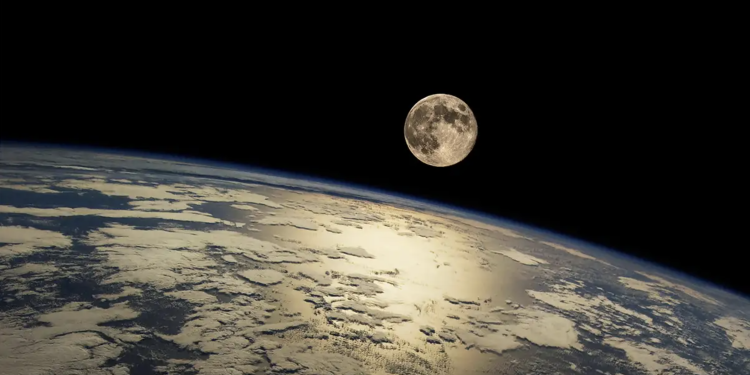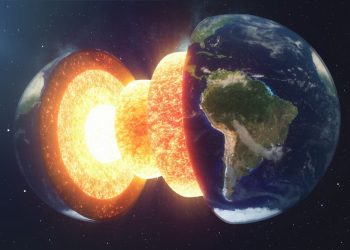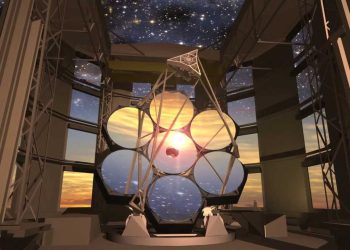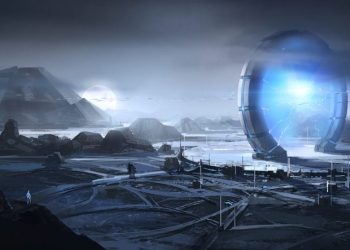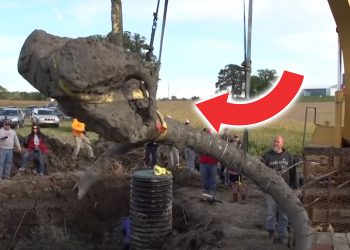What if the Earth is more than a passive backdrop for life—what if it’s a dynamic, living system actively shaping the conditions that allow life to flourish? This is the bold idea behind the Gaia Hypothesis, first proposed in the 1970s by chemist James Lovelock and microbiologist Lynn Margulis. It suggests that Earth’s biosphere, atmosphere, oceans, and even its rocks work together like a self-regulating organism, maintaining conditions ideal for life. It’s a radical perspective that forces us to rethink the relationship between living organisms and their environment, opening up profound questions about how life and planet co-evolve.
In other words, the Gaia Hypothesis paints a picture of a planet that doesn’t merely host life—it collaborates with it. For example, Earth’s temperature has remained remarkably stable over billions of years, despite the Sun growing 30% brighter during that time. Instead of boiling away or freezing solid, the planet has maintained a range hospitable to life. How? According to Lovelock, it’s because living organisms interact with their environment to regulate factors like temperature, atmospheric composition, and even ocean salinity. These processes form a kind of planetary thermostat, an intricate dance of biology, chemistry, and geology that keeps the world in balance.
Earth’s Invisible Caretakers
Consider oxygen—an element so reactive it should have disappeared from Earth’s atmosphere long ago by binding with other materials. Yet, it remains at a steady 21%, thanks to plants, algae, and microorganisms that continuously replenish it. Similarly, methane, which should combust in an oxygen-rich atmosphere, is sustained by biological activity. These delicate balances highlight how life doesn’t just adapt to its environment and reshapes it, stabilizing conditions to sustain itself.
Another example lies in the oceans. Despite rivers constantly delivering salts, ocean salinity has held steady at about 3.4% for millions of years—perfect for marine life. Without this stability, most aquatic organisms couldn’t survive. Recent research suggests microorganisms, along with geological processes like the formation of salt plains, play a crucial role in maintaining this balance, underscoring the deep interdependence of life and environment.
Biodiversity: The Planet’s Safety Net
Biodiversity plays a pivotal role in maintaining Gaia’s balance. Imagine an ecosystem as an airplane: each species is a rivet holding the structure together. Lose one or two, and the plane may still fly. But lose too many, and it will crash. This analogy, proposed by ecologist Paul Ehrlich, emphasizes how every species contributes to the health of the planet, even if its role isn’t immediately obvious.
Experiments like the Daisyworld simulation, developed by Lovelock, reinforce this idea. In the model, black daisies absorb heat, warming the planet, while white daisies reflect sunlight, cooling it. Together, they create a self-regulating system that stabilizes planetary temperatures. Studies have shown that ecosystems with greater biodiversity are more resilient, recovering faster from disruptions and better adapting to change. In essence, diversity isn’t just beautiful—it’s essential for stability.
Gaia Under Threat
But there is always that, however.
Despite its incredible resilience, Gaia is not invincible. Human activities—deforestation, pollution, and the relentless burning of fossil fuels—are pushing Earth’s systems to the brink. Feedback loops that once stabilized the planet are now being disrupted. For instance, oceanic phytoplankton, tiny organisms that help form clouds and cool the planet, are declining due to warming seas and acidification. This weakens one of Earth’s natural cooling mechanisms, creating a dangerous cycle of warming.
Lovelock himself warned that humanity’s actions could flip Gaia’s negative feedback loops—processes that stabilize the environment—into positive feedback loops, which amplify changes. This shift could lead to runaway global warming, mass extinctions, and a planet increasingly hostile to life.
From Hypothesis to Global Awareness
Initially met with skepticism, the Gaia Hypothesis has since gained recognition in fields like Earth system science and geophysiology. In 2001, over a thousand scientists signed the Amsterdam Declaration, stating that the Earth functions as a single, self-regulating system. This acknowledgment marked a turning point, as the once-radical idea became a cornerstone for understanding how life and environment are intertwined.
But Gaia isn’t just a scientific concept—it’s a call to action. It challenges us to view ourselves as part of a greater whole, urging us to protect the delicate balance that sustains life. The hypothesis reminds us that the Earth’s resilience has limits, and our actions have consequences.
The Gaia Hypothesis offers a profound lesson: we are not separate from the Earth. This reminds me of a website I used to write for, who was owned by a dear friend of mine, Earth, we are ONE.
Every action we take ripples through an interconnected system, affecting not only other species but also our own future. Whether you see Gaia as a living entity or a metaphor for the planet’s complex systems, the message is clear: Earth is not just our home—it’s our partner in survival. Protecting it isn’t just about saving the environment; it’s about ensuring our own place in the grand, intricate web of life.



